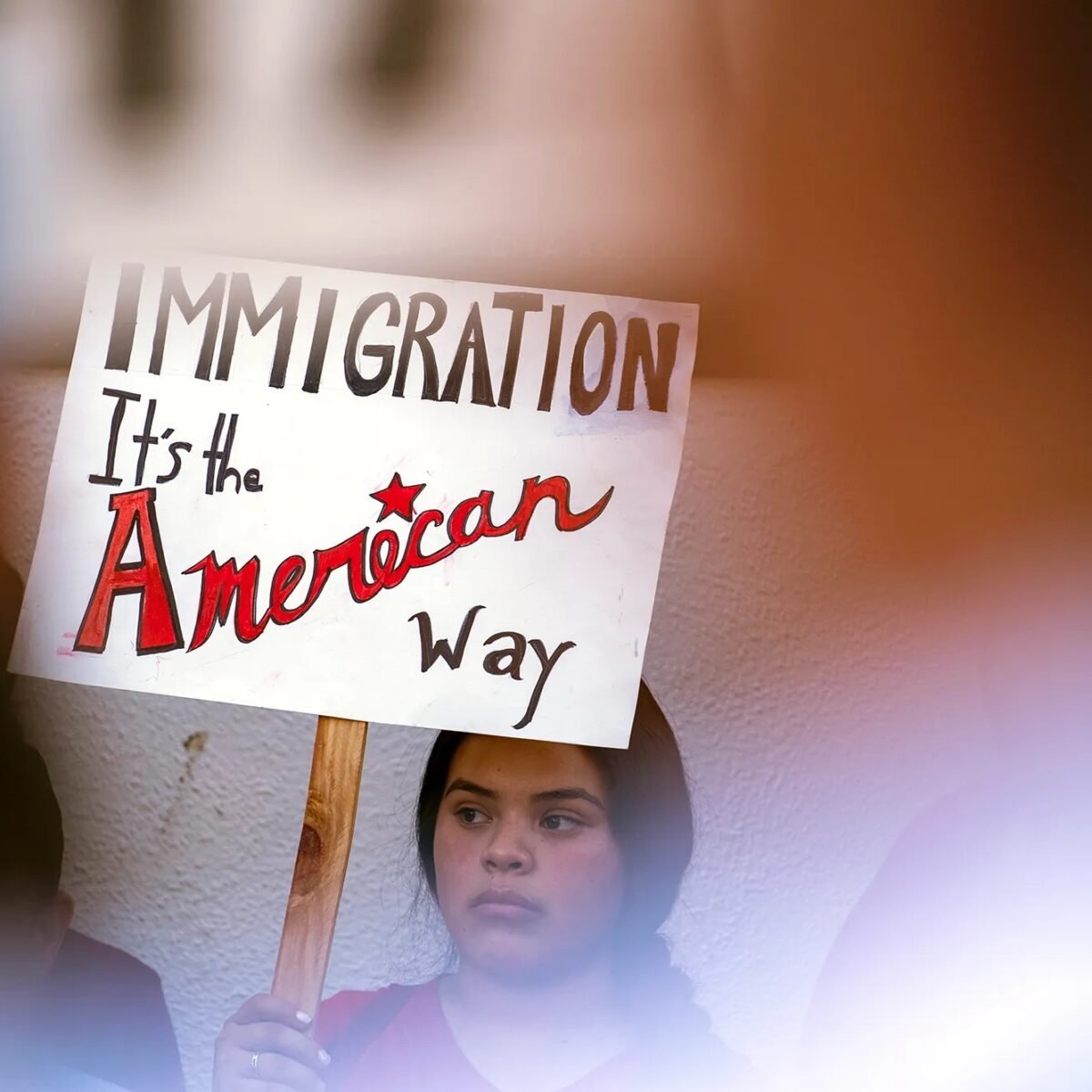This is what happens when the federal government, against the wishes of those who live in a community, exercises its distant authority and imposes a solution Los Angeles residents don’t want. Confrontations in a small area of downtown escalated after the arrival of the National Guard and then of active-duty U.S. Marines.
And Los Angeles’ large, productive, and now very afraid community of undocumented immigrants has slipped into the shadows.
There are many misconceptions about immigrants in Los Angeles, but none more disorienting than the canard — so popular among Trump administration representatives — that those immigrants who arrived without papers somehow live apart from the rest of the city.
The role of these immigrants in the local economy is widely misunderstood and deliberately misrepresented. Undocumented immigrants do not work outside the larger economy; they are integrated into it, just as they are into every other aspect of life in California.
When they are removed or are cowered into staying home, the effects touch everyone.
“The impact on the economy is broader,” said Saba Waheed, director of UCLA’s Labor Center. “They (federal authorities) are uprooting and interfering in the daily life of Los Angeles.
“You’re taking away part of our workforce. That is hurting L.A. more broadly.”
That’s in part because of the close integration of illegal immigrants into the broader economy, and not just in Los Angeles. In California, undocumented workers make up about a quarter of all farm laborers and construction workers.
When Arizona adopted anti-immigrant laws in the early 2000s, many undocumented residents, perhaps as many as 40%, left. The economy suffered. And unemployment for low-skilled white men increased, not decreased.
That makes perfect sense to all but the closed-minded or hard-hearted.

Whether here legally or illegally, these are working men and women. When they get paid, they spend that money on clothes and places to live, toys for their children, food and the stuff of life. That spending goes into the broader economy, supporting businesses that are owned and operated by legal residents.
Restaurants and stores that depend on business from those in the country illegally suffer right along with those immigrants.
Trump supporters, starting with the president’s shrill emissary, Stephen Miller, like to counter with crocodile tears for illegal immigrants, who they suggest are an exploited class of workers, while simultaneously calling them an ominous criminal threat.
And though it is certainly true that some undocumented residents are paid lower wages than citizens, many are not victims but have been comfortably working for years. Indeed, nearly 80% of those living illegally in this country have been working here for more than a decade.
Miller and his fellow travelers suggest that this is all a drag on the economy, a burdensome expense. But that, too, is false.
In addition to the economic activity they generate, undocumented workers pay taxes — using taxpayer identification numbers, many pay federal income taxes. Others share housing, often with documented family members, and help pay property taxes.
Many of these workers have Social Security money withdrawn from their paychecks but, since they are using fake Social Security numbers, they never get the benefits at the other end — which means they help prop up that system for others.
And, of course, they pay sales taxes, which are especially vital to local governments.
California’s undocumented workers contribute $23 billion a year in federal, state and local taxes. Their direct pay alone amounts to 5% of the state’s economy, a new study shows.
Pulling them out of the workforce, either to send them out of the country or chasing them indoors to avoid detection, hurts not just them. It hurts Los Angeles.
In fact, if deportation enthusiasts got their fondest wish, it would hurt the entire country.
One study concluded that if the government succeeds in deporting every person currently in the country illegally, it would result in a 1.4% drop in Gross Domestic Product in the first year, with losses rising thereafter. The economy would shed more than $5 trillion.
Those are studies. And then there is life in the city.
Los Angeles, like any city, would welcome the removal of dangerous people. But that’s not who’s being grabbed. Immigrants in the country illegally tend to be more law-abiding once here than native-born Americans.

Under Trump, more than 70% of those seized in these disruptive raids have no criminal record at all, and many more have only minor traffic or other offenses. All told, about 8% of those snatched by ICE in recent months have serious criminal histories.
That means more than 9 out of 10 gave no evidence of being a threat. Removing them separates families, devastates businesses and damages the larger economy — with no corresponding benefit to the safety of this community.
You don’t snag criminals by raiding car washes and Home Depot parking lots. Washington may not get that — or may not care. But Los Angeles does.
If those who are behind the recent immigration raids imagined that they were excising an unwanted, detached community from the rest of Los Angeles, they badly miscalculated. Instead, this region has demonstrated resolve and solidarity in the face of a threat that is not just economic but cultural as well.
Churches with large immigrant congregations are advising their parishioners to stay home rather than expose themselves to ICE. Hotels and businesses are flying Mexican flags in solidarity with their workers.
Activists and everyday people are refusing to cooperate when masked agents, who themselves refuse to provide identification, demand it of others, often merely because of their skin color.
The city of Pasadena, hardly a hotbed of radicalism, cancelled summer swim and park programs last weekend for fear that ICE would use them to snag suspects.
Those actions prove a point: These immigrants, however they arrived or whatever their legal status, are integral to this region’s economy and to its sense of self.
These are our neighbors, our friends, the friends of our children, our coworkers. Forcibly removing them is bad for them, of course. It’s also bad for the rest of us.
This article was originally published on CalMatters and was republished under the Creative Commons Attribution-NonCommercial-NoDerivatives license.





